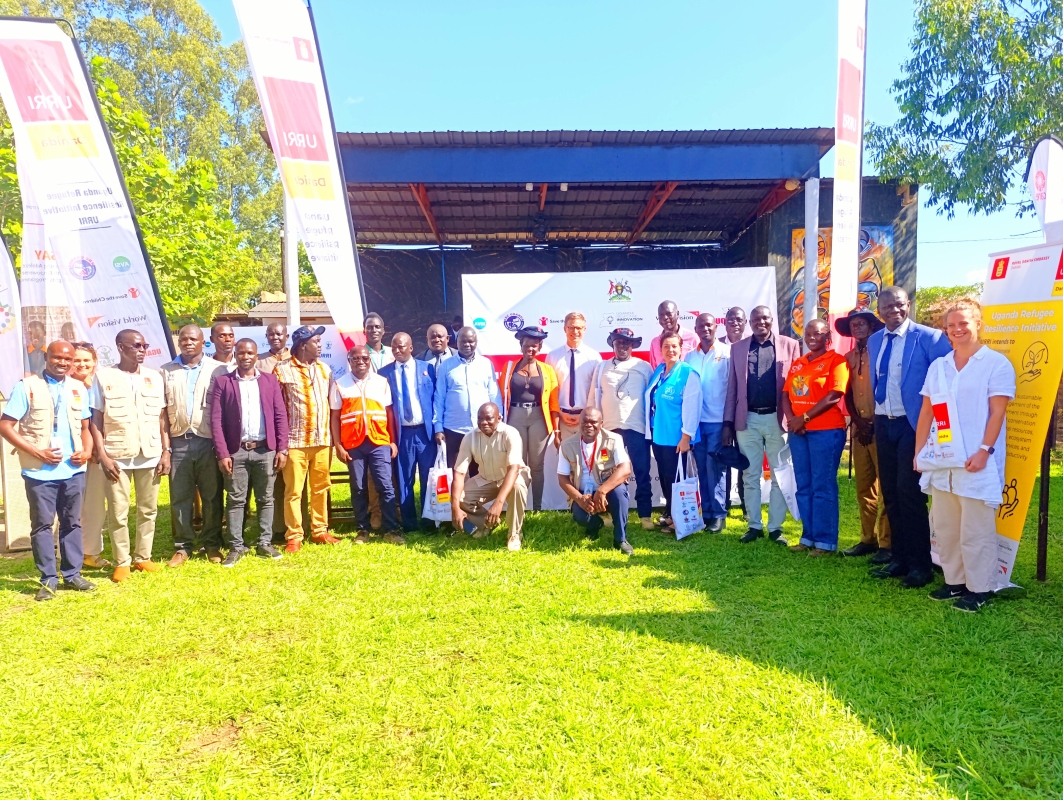Attention
URRI PROJECT TO EMPOWER OVER 7,000 FARMERS IN ADJUMANI TO ADAPT TO CLIMATE CHANGE.

By Bazio Doreen
Authorities in Adjumani and the Royal Danish Embassy (DANIDA) have launched the Uganda Refugee Resilience Initiative (URRI) project in the district, building on the milestones of the Northern Uganda Resilience Initiative (NURI) project that ended in 2023. NURI contributed to the resilience of over 130,000 households in Northern Uganda and provided agricultural advisory services to more than 4,000 farmer groups.
Funded by DANIDA and running up to December 2028, URRI is designed to enhance climate resilience and promote sustainable development for refugees and host communities across Uganda, mainly operating in the areas previously supported under NURI.
In Northern and Western Uganda, the project will be implemented by a consortium of 7 partners led by Save the Children. The other partners in the consortium are World Vision, AVSI Foundation, Kabarole Research Centre Uganda (KRC), Uganda Network on Law Ethics and HIV/AIDS (UGANET), Youth Social Advocacy Team (YSAT), and Uganda Response Innovation Lab (U-RIL).
In his welcome remark at the launch ceremony that took place at Lavic Hotel on Thursday, 8th May 2025, Hon. Anyama Ben, the District Chairperson of Adjumani, appreciated DANIDA for funding two critical projects (URRI and SAY) in the district, addressing pressing issues in production and reproductive health, respectively.
While pledging the district's support to ensure that the project succeeds, the Chairman also thanked the embassy for choosing Adjumani and observed that the project would not only restore the environment but also improve food security and build resilience of the beneficiaries.
“Thank you for choosing Adjumani because you could have taken this project elsewhere. We are going to support the implementation and make sure the project succeeds,” Hon. Anyama said.
Hon. Anyama added, “Our biggest problem now is food. When you don’t have food, you can’t be productive. The lack of food is likely to cause conflict in the district due to the large number of refugees we host. WFP needs to rethink. But we thank you for your support.”
The key Components of the URRI program include: Climate-smart agriculture training, financial inclusion initiatives, post-harvest handling, and Value-addition training. It will also offer support for alternative sustainable livelihoods, energy-saving technologies, leadership training for women and adolescent girls, and the cultivation of multi-purpose trees to benefit households and communities.
In response, H.E. Adam Spilimo, the Deputy Royal Danish Ambassador, who presided over the ceremony, explained that Adjumani was chosen for its generosity and hospitality, complemented by the long and enduring partnership with the local government that motivates continuous support.
“Adjumani is by far the most generous district, and that merits recognition. We recognize this not in words but with action and support. We know that hosting refugees puts a lot of pressure on the environment,” H.E. Spilimo appreciated district leaders.
In affirmation, Taban Peter Data, the Resident District Commissioner of Adjumani, observed that the project will foster peaceful coexistence between the refugee and host communities, improve food security, and reduce degradation of the environment.
“WFP gave the refugees food, but no one gave them firewood to prepare it, and that is why we have seen continued deforestation for firewood. Feeding people for years is not sustainable; refugees should be supported to work and earn,” Taban observed.
Aligned to the National Development Plan IV (2025-2030) and with a total budget of shs 145 billion (USD 40 million), URRI aims to create sustainable and durable solutions for Uganda’s refugee-affected districts of Yumbe, Obongi, Moyo, Madi Okollo, Terego, Koboko, Adjumani, Lamwo, and Kyegegwa, where high levels of poverty have exacerbated the impact of refugees and climate change.
In Adjumani, the project will be implemented district-wide, targeting 7,404 households as direct beneficiaries and 49,388 as indirect beneficiaries. Of these, 4,442 will be women and youth, 222 Persons with Disabilities, and 2,962 men. These will also be arranged in 246 farmer groups, where 2,591 will be refugees while 4,813 will be from the host communities.
